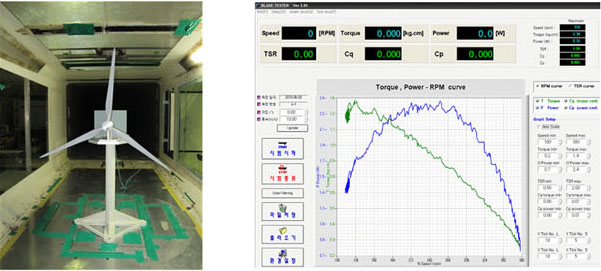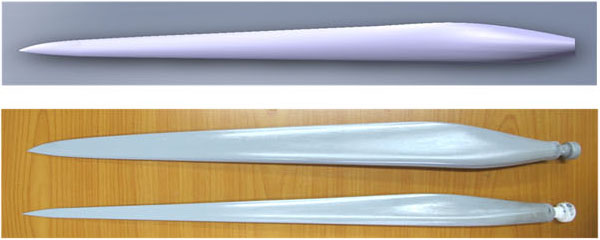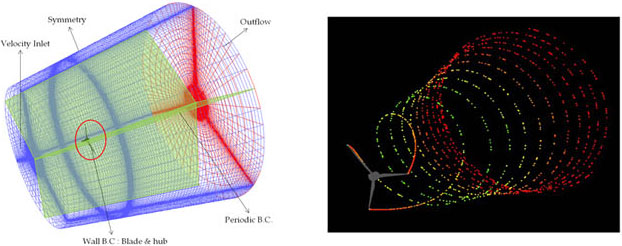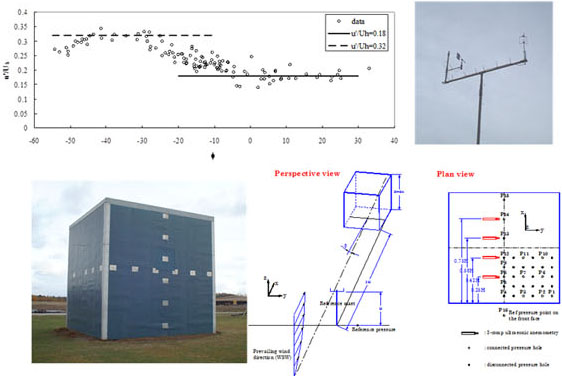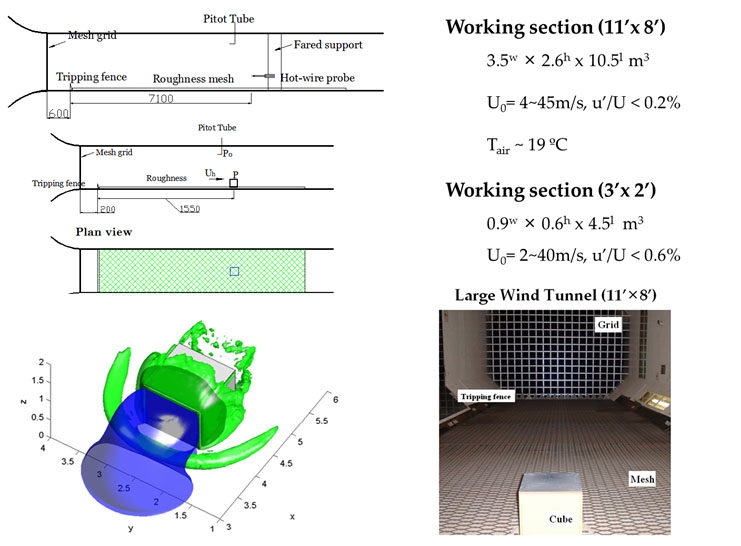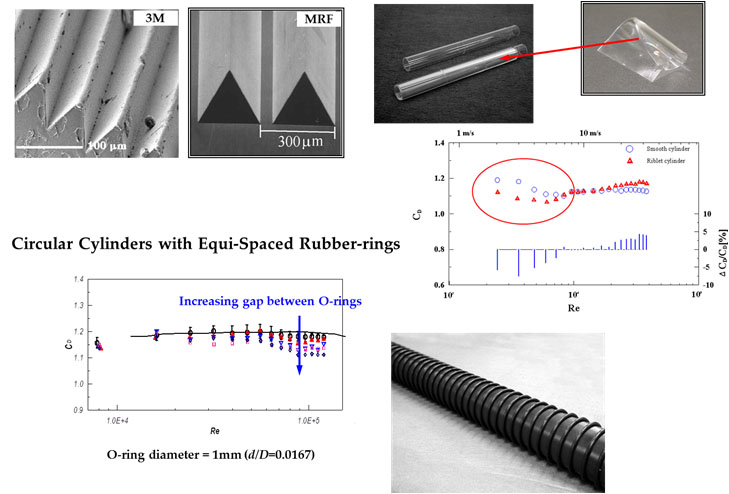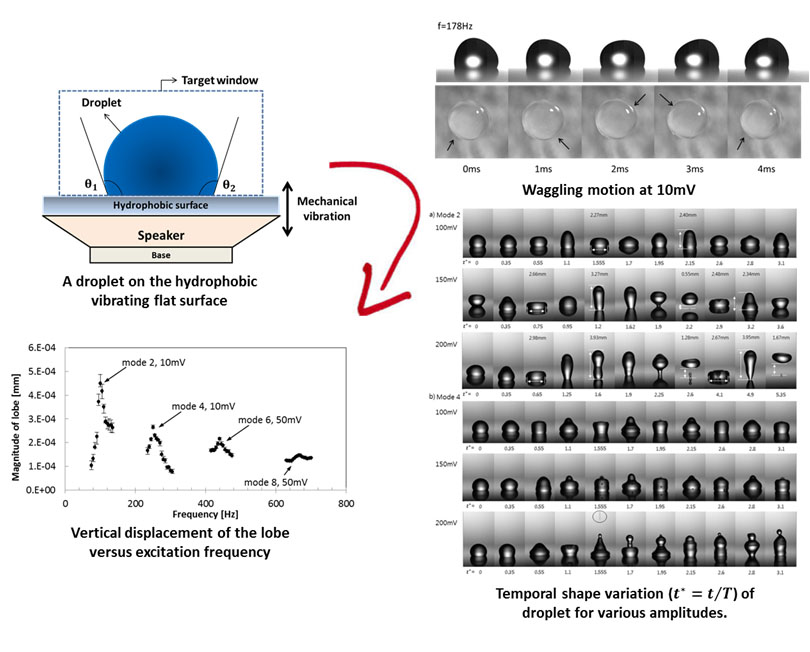- Computational Fluid Mechanics (수치유체역학)
- Modelling Wind Flow Over Bluff Bodies (물체주위 유동모델링)
- Design and Optimization of Wind Turbine Blade and Wind Farm
- Atmospheric Wind Flow over Complex Terrain
- Visualization and Image Processing Techniques
- Micro-fluidics and Electrowetting
Research Interests & Experience
Renewable (Wind) Energy, with the popular interest, many projects regarding to wind energy were undertaken. The main items include the prediction of wind energy around the possible wind site (Wolryong, Jeju and Mr. Seung-Hak, Yongdang and Subyun Park, Pusan) and the design optimization of the blade of wind turbine (NREL S821model).
[Wind tunnel experiment in the wind tunnel and UI panel]
[Wind turbine blades used in the wind tunnel]
[Numerical simulation of wind turbine blades used in the numerical tunnel]
Atmospheric Wind Flow over Complex Real Fields, which accounts for all the perturbing effects of nonuniform and unsteady surface-flow conditions, topography and thermal stratification. Numerical and experimental methods for the prediction of the atmospheric wind flow and the pollutant dispersion over complex terrain were investigated. Field measurements were also carried out on a 6 m, smooth-surfaced cube mounted on a turntable in a level, open field site at Silsoe Research Institute(UK).
[Field measurement of wind flow around bodies (Silsoe, UK)]
[Wind tunnel measurement of wind flow around bodies]
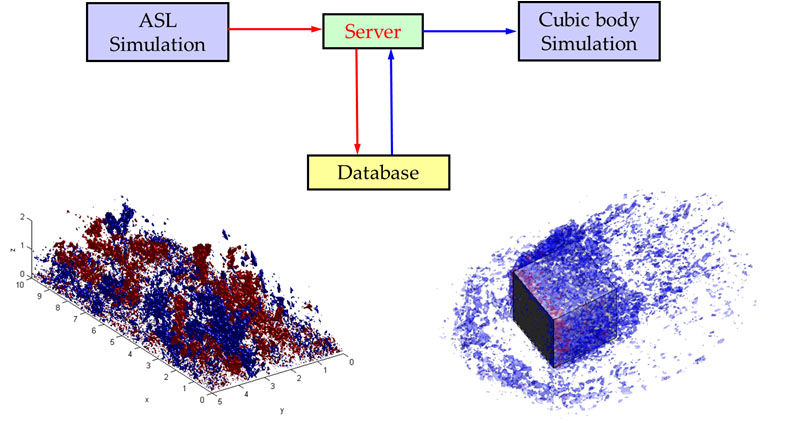 [LES simulation of wind flow around bodies]
[LES simulation of wind flow around bodies]
" >
 [LES simulation of wind flow around bodies]
[LES simulation of wind flow around bodies]
" >
[LES simulation of wind flow around bodies]
Drag Reduction using Active/Passive Flow Control Techniques, which is closely related with energy saving, and extensive effort has been made over recent decades to reduce the drag acting on moving vehicles. In order to reduce the drag force acting on a bluff body, it is necessary to accurately predict and effectively control the flow around the body. In this study, flow characteristics around a circular cylinder were investigated experimentally with varying surface configurations (U and V-shaped grooves, O-ring and Micro-Riblet Film).
[Flow control of circular cylinders with a variety of surfaces]
Microfluidics & Electrowetting, which is the electrical control of wettability of liquid on a solid dielectric solid as a microfluidic actuation mechanism in integrated microfluidic devices such as biochips, microreactors, and μ-TAS. The electrowetting phenomenon was investigated in the viewpoint of the classical electrostatics. Special attention was devoted to excavating the influence of excess charge induced at the edge region of a droplet.
[Droplet motion and its modes placed under vertical oscillation]



